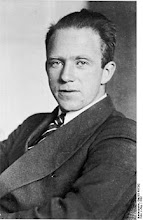This particular occurrence probably doesn’t rate much notice in and of itself; it is just part of the grand and varied pageant that is life in the South. No doubt many people, black and white, have come to view these “traditional” displays as simply part of the culture and no more significant than dressing like a leprechaun and puking up green beer on St. Patrick’s Day. To many it is one of the small compromises required of a multi-ethnic society. Others, however, still find the associations with the slave-owning and secessionist Confederacy to be offensive.
I was born just a few minutes after 9:00 AM in the Macon Hospital in Macon, Georgia in October of 1960. At that point, it had been just over 95 years since the Confederate rebellion was put down by President Lincoln and his cadre of able Generals. My family has deep roots in Georgia and many of the streets in the City of Macon bear the names of my ancestors. Apparently the family fortunes were well on the decline by the time I came along (and I haven’t done much to change them), but in the 1850’s we were major land owners with large agricultural operations and, yes, slaves. Genealogical records show that I had ancestors who fought, and died, in the Confederate cause, so I am about as true a son of the South as currently remains.
So I find myself in this peculiar position of seeking to connect with the history that led to my presence on this earth, while at the
 same time being deeply concerned about the moral qualifications of my forbearers. Slavery is a transparent abomination, and not just from the perspective of post-industrial modernity; there were many who opposed slavery before it was even established in North America and many more who worked tirelessly against it afterwards. Unfortunately my great, great, great-grandfather wasn’t one of them. He profited from the immoral confinement and exploitation of other humans who were actually bred to be profitably sold into the slave market and who existed wholly outside the protection of law. I think we have all seen Gone With the Wind too many times to really come to terms with what a cruel and ugly business slavery was.
same time being deeply concerned about the moral qualifications of my forbearers. Slavery is a transparent abomination, and not just from the perspective of post-industrial modernity; there were many who opposed slavery before it was even established in North America and many more who worked tirelessly against it afterwards. Unfortunately my great, great, great-grandfather wasn’t one of them. He profited from the immoral confinement and exploitation of other humans who were actually bred to be profitably sold into the slave market and who existed wholly outside the protection of law. I think we have all seen Gone With the Wind too many times to really come to terms with what a cruel and ugly business slavery was.Not that the Kappa Alpha Order is promoting slavery or that slavery was the only issue that brought about the Confederacy’s insurrection against the U.S. Constitution, but wearing Confederate uniforms and waving Confederate flags (and looking nostalgically back to those fiercely independent and noble men who bravely fought against overwhelming odds to protect their way of life) just tacitly endorses a culture and practices that we should by rights be ashamed of. We try to separate the positive from the negative in our minds and honor only the courage and patriotic dedication of our Southern ancestors, but ultimately it is just a self-deceptive sophistry that allows us to avoid acknowledging the evil of slavery and the destructive rebellion perpetrated by those that endorsed it.
I grew up in a place where “Stonewall” Jackson and James Longstreet were heroes and racial epithets were common. In my mind, these conditions are inseparable. Even now I sometimes have to stop myself from parroting the derogatory racial humor of my childhood and I still must make a conscious effort to remind myself that a person’s value cannot be divined by their appearance. This “innocent” hatred that I absorbed from family and friends has over the years largely been replaced by reason and objectivity, and it disappoints me greatly to see another generation of the South’s youth indulging in the fantasy that men can participate in evil and not be diminished by it.









No comments:
Post a Comment